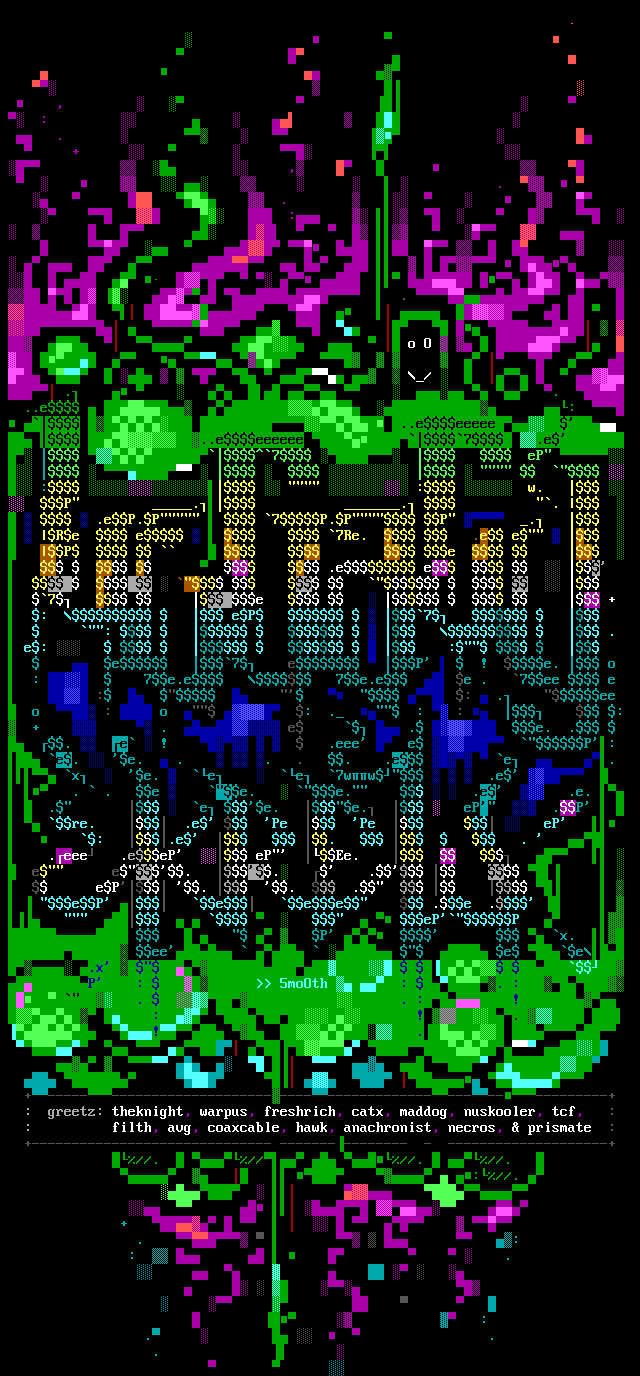

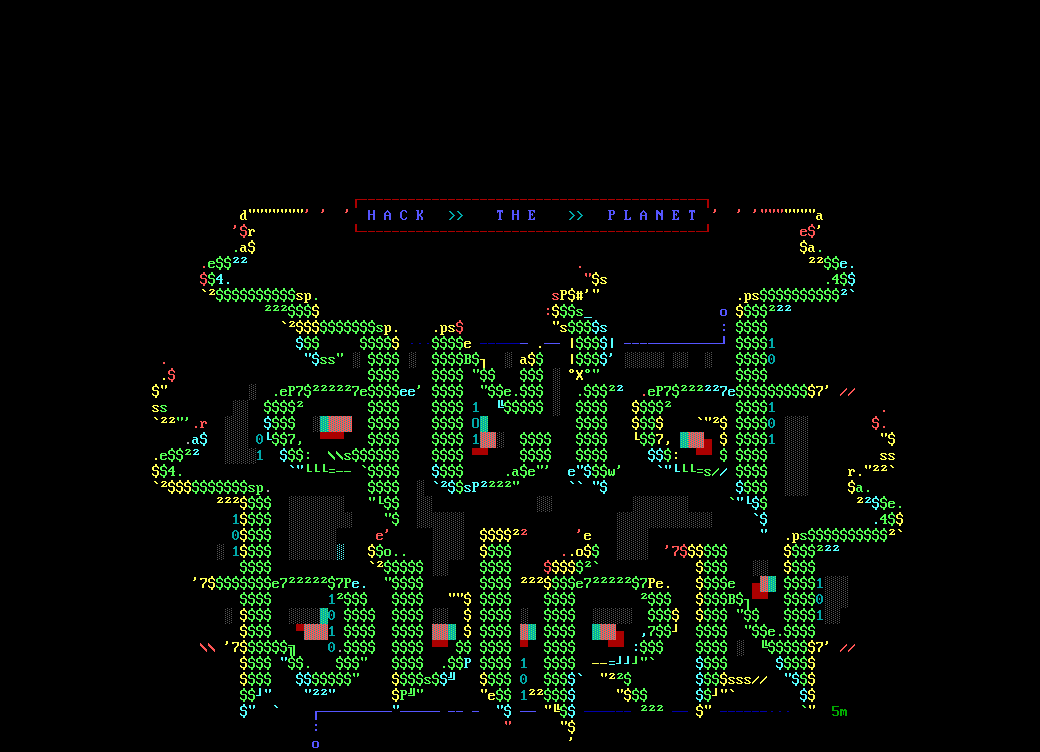
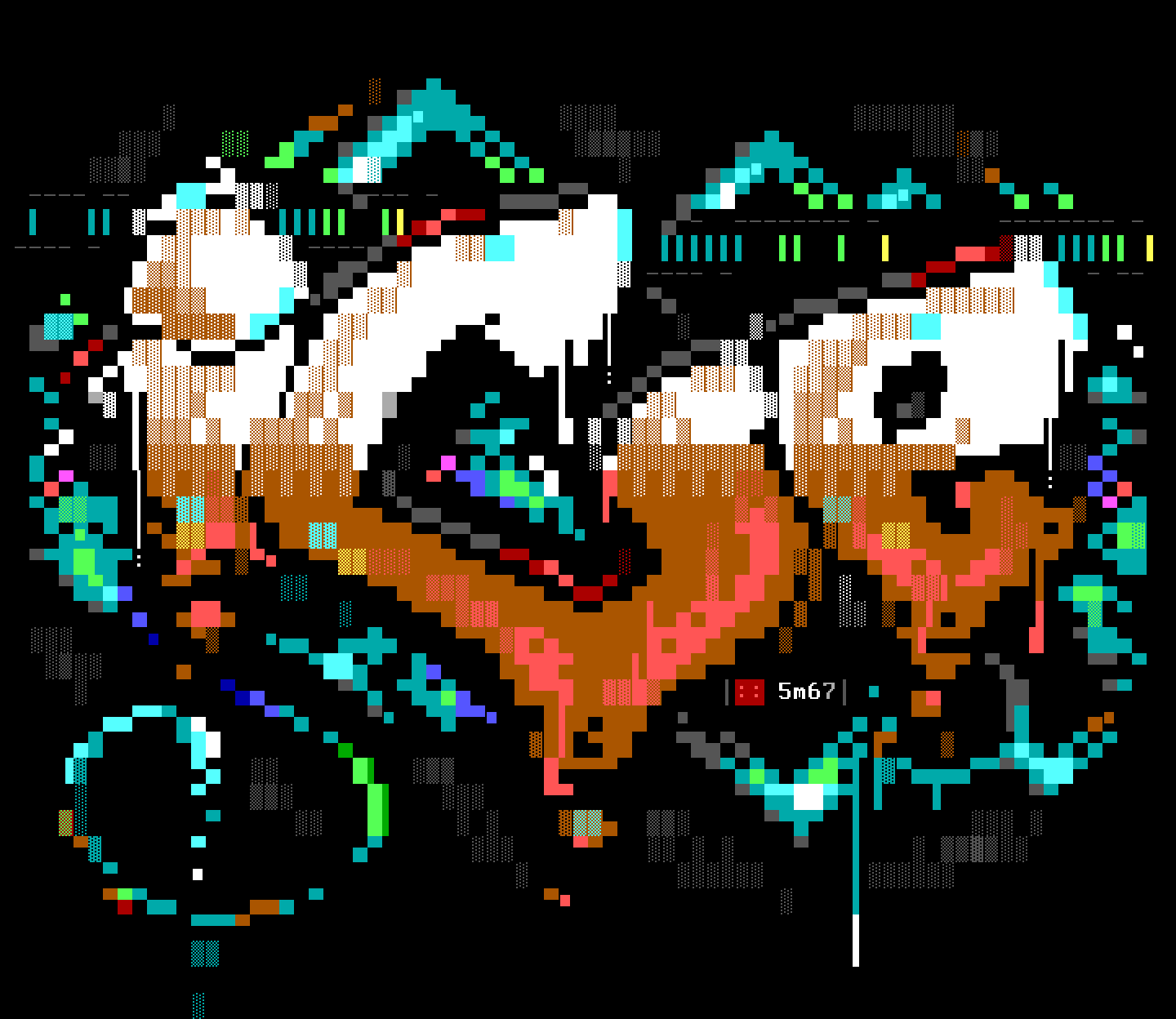
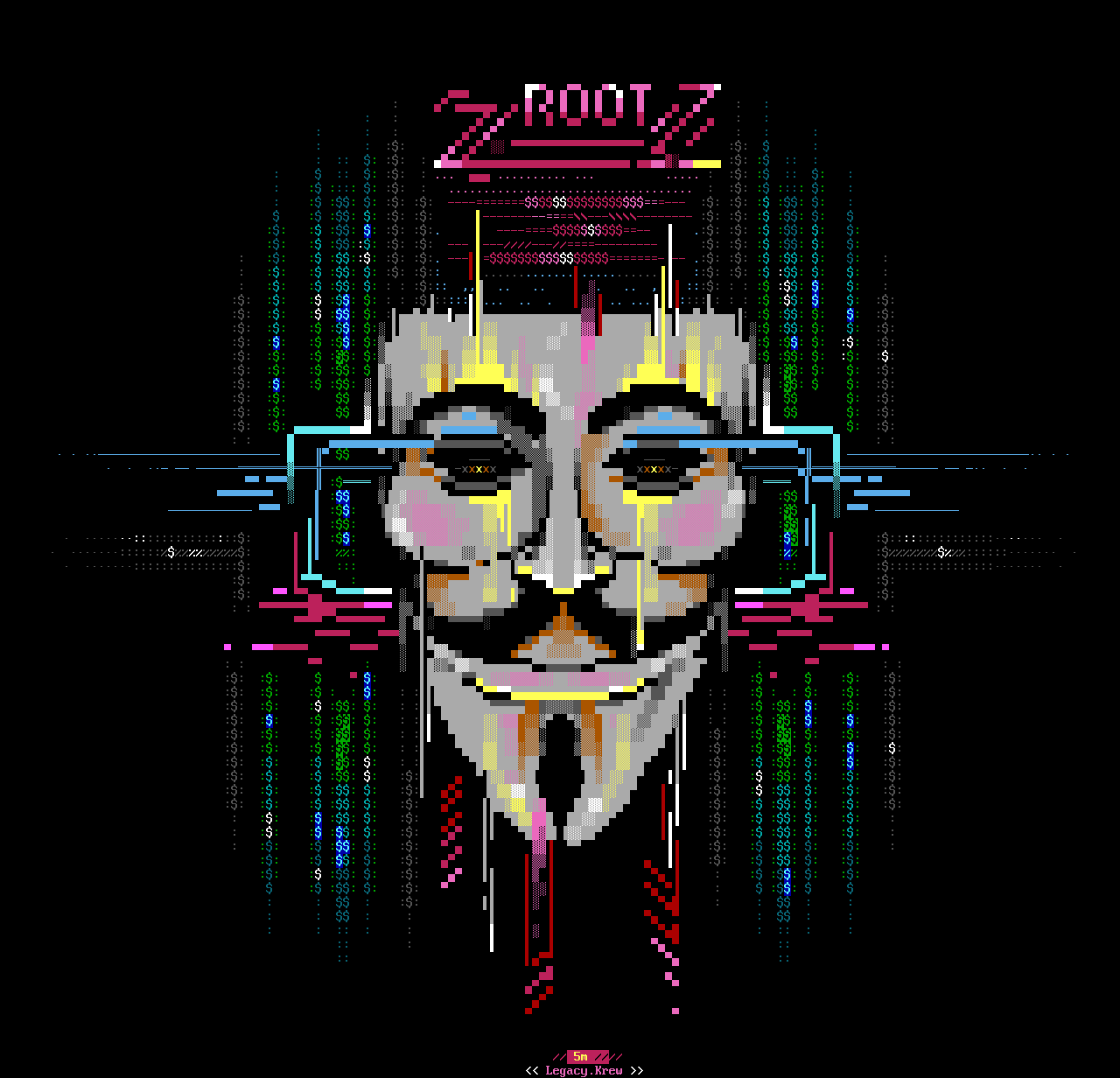
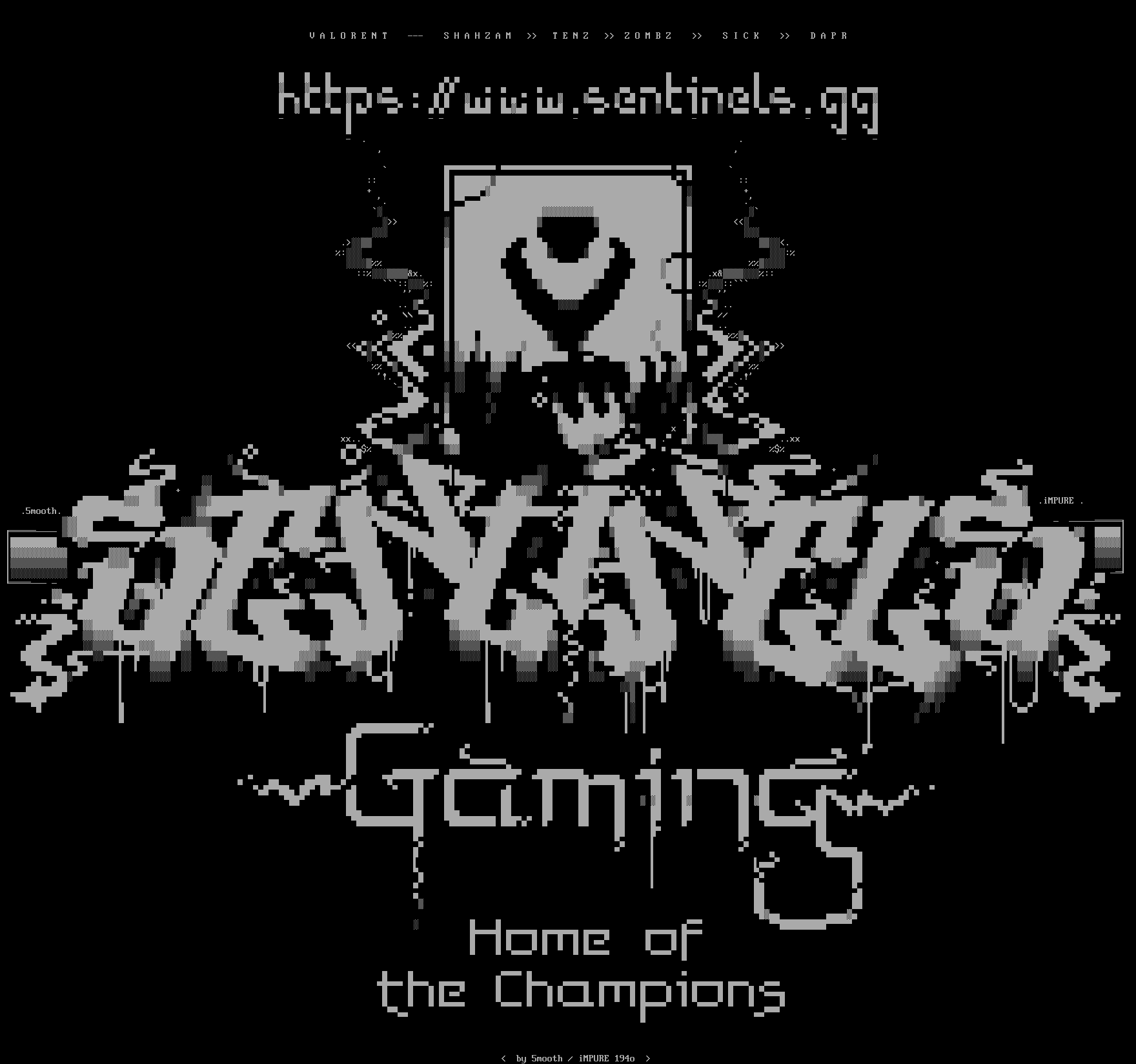
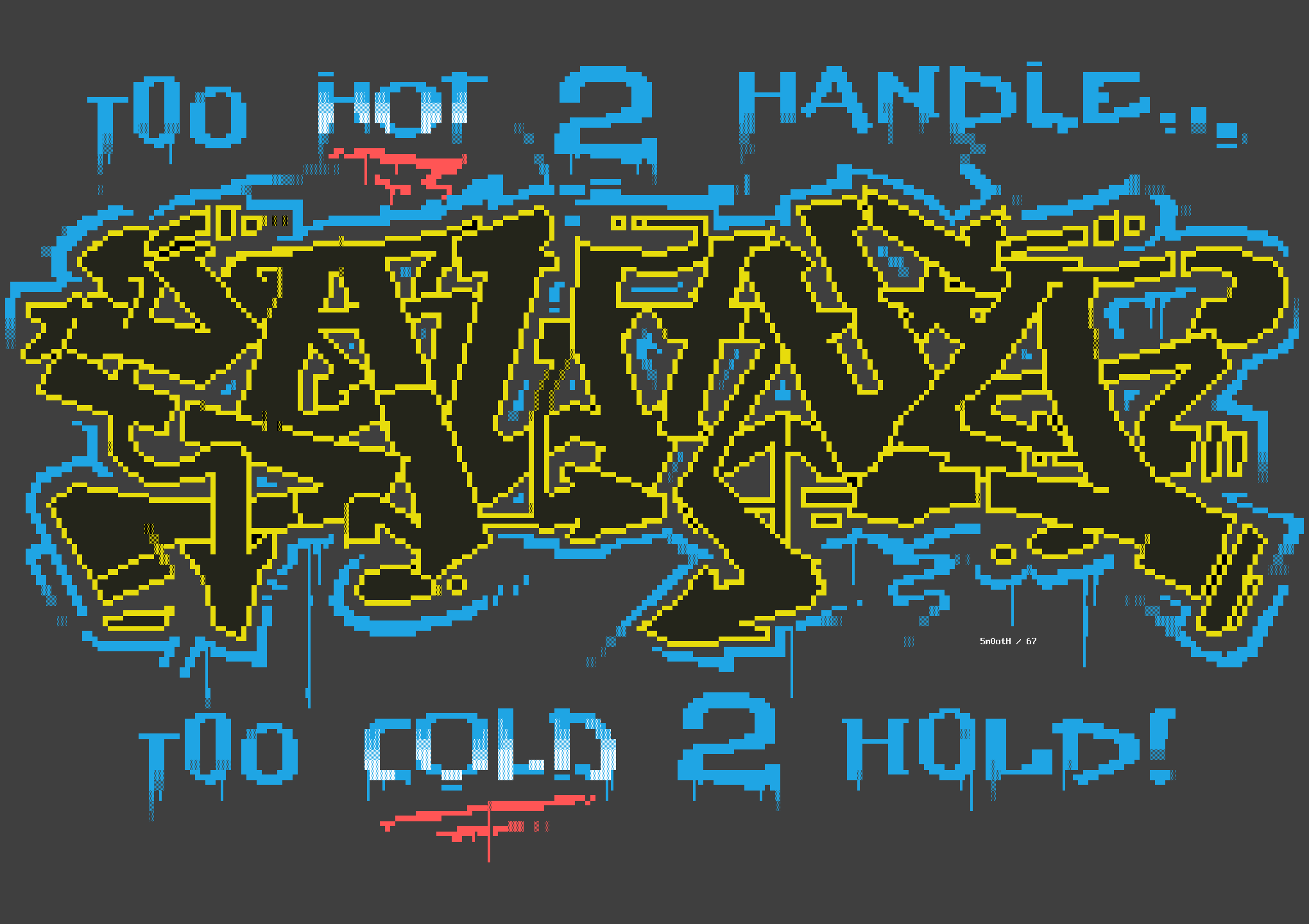
Graffiti-inspired ANSI and ASCII by Smooth (5m), 2020-2021. Some of these have unusually high resolution (160-255 chars wide). via sixteencolors







Graffiti-inspired ANSI and ASCII by Smooth (5m), 2020-2021. Some of these have unusually high resolution (160-255 chars wide). via sixteencolors
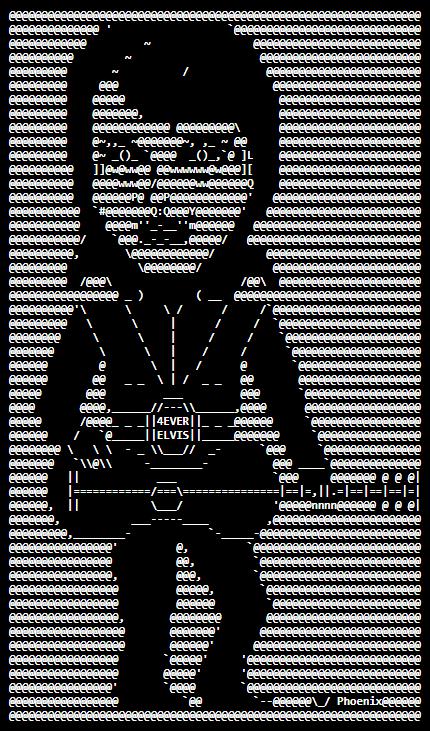
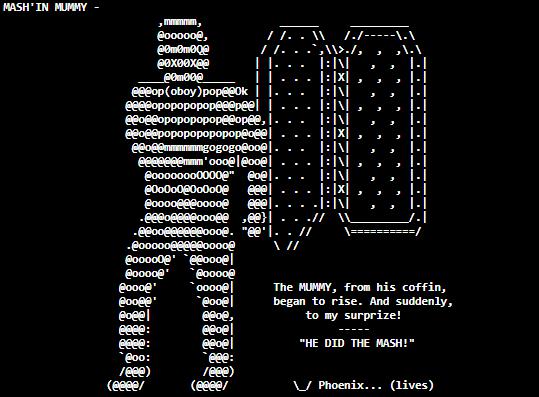
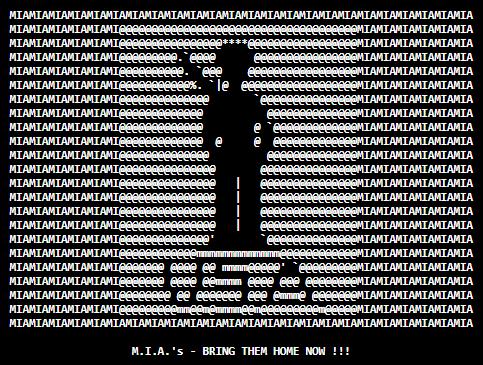
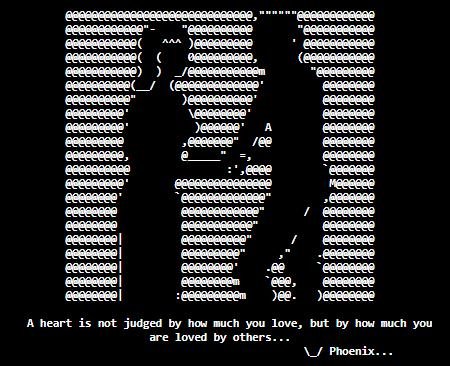
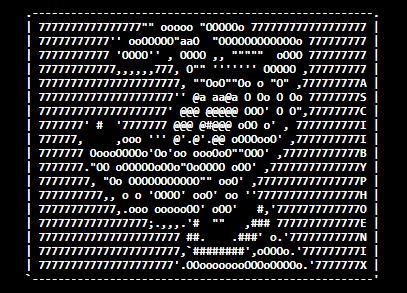
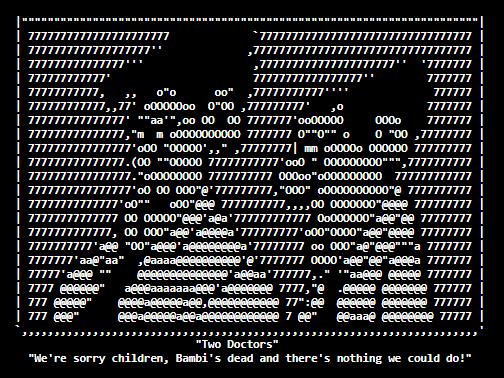
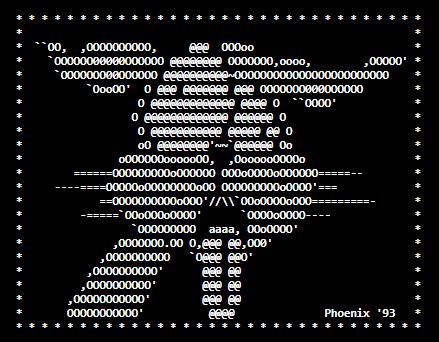
By Roy Sussman (aka Phoenix), 1991-1993. One of the more blocky ASCII-stylists on Usenet back then. Also see Oviatt & Keech.
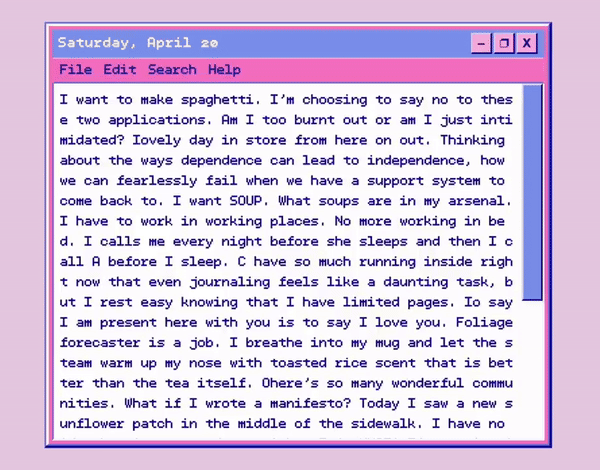
Clip from a work by Alicia Guo published in CURSOR magazine, 2024. “a day where your attention is constantly shifting”

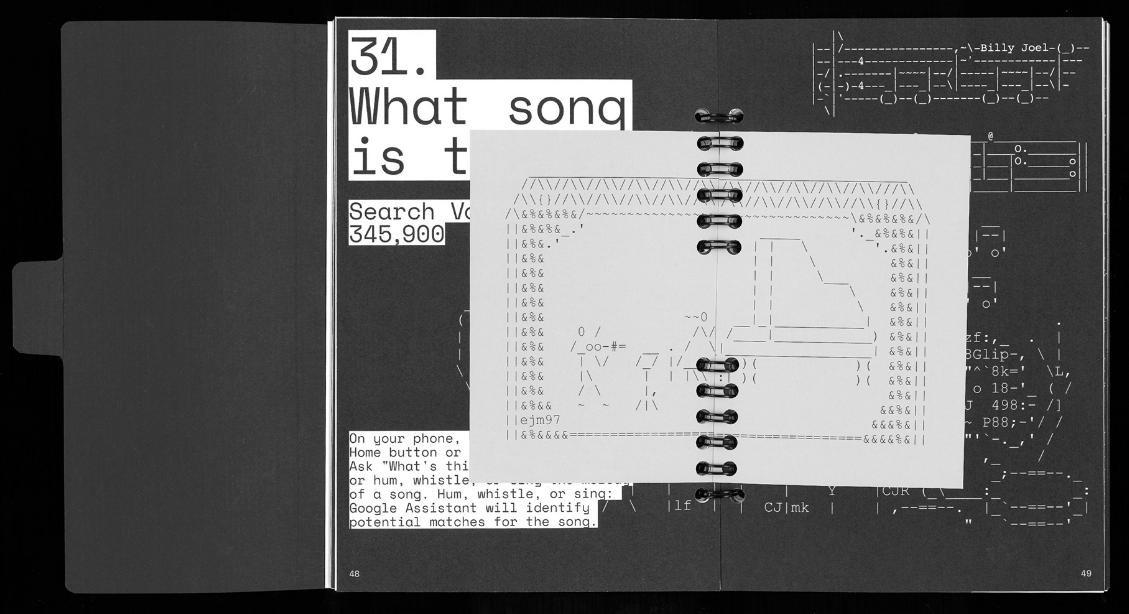

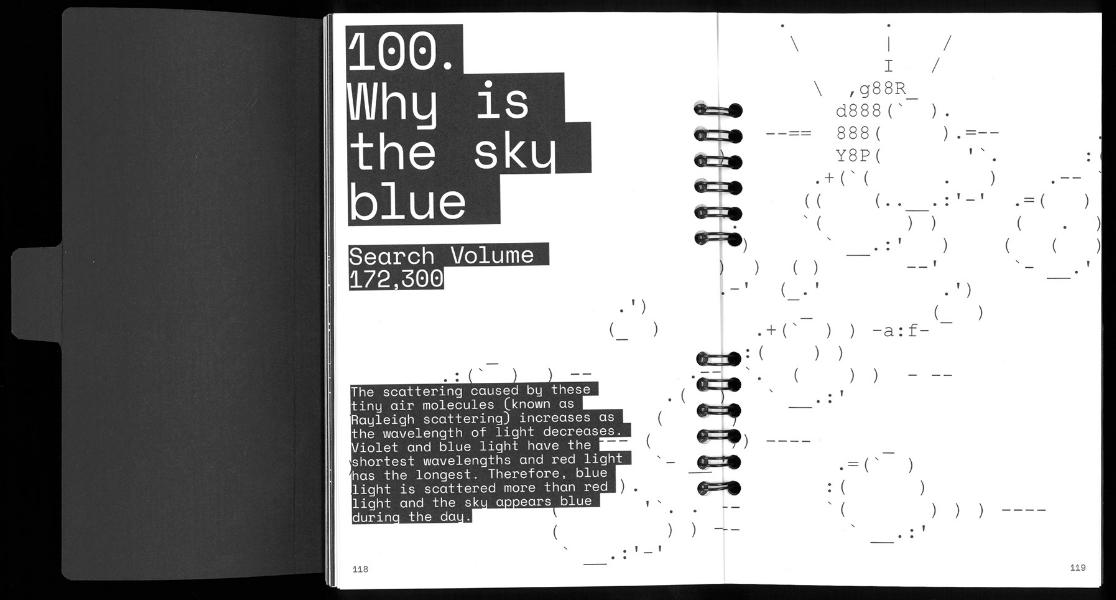
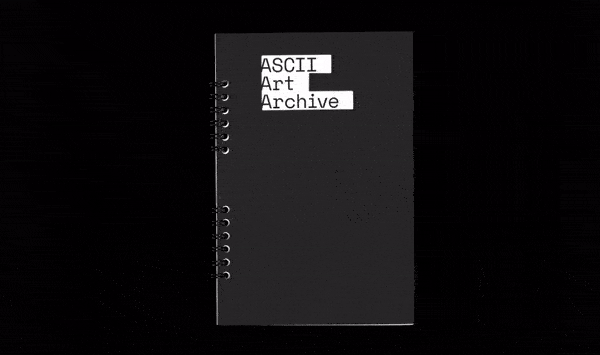
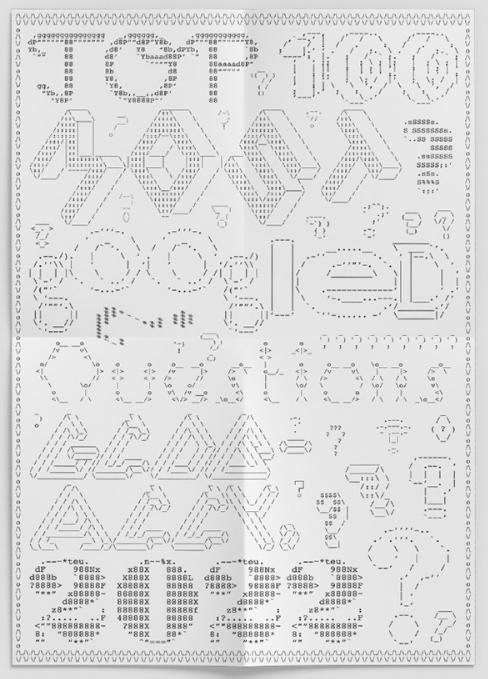
ASCII Art Archive by Jiyoung Kim, 2023. Illustrates the most searched questions for 2022 with ASCII art by AsH / BoD / bug (Blazej Kozlowski) / cgmm / Colin Douthwaite / dp (David Palmer) / ejm97 / Grp / hectoras / hh / hjw (Hayley Jane Wakenshaw) / jgs (Joan Stark) / joil’99 / LGB (lgbeard) / LS (Lennert Stock) / mx (myflix) / Normand Veilleux / pjb (Peter Bier) / pb / Shimrod / Snd (Shanaka Dias) / SSt (Sebastian Stöcker) / Susie Oviatt / S@yaN / Tua Xiong / TwelveStepJesus / Valkyrie / VK (Veronica Karlsson).
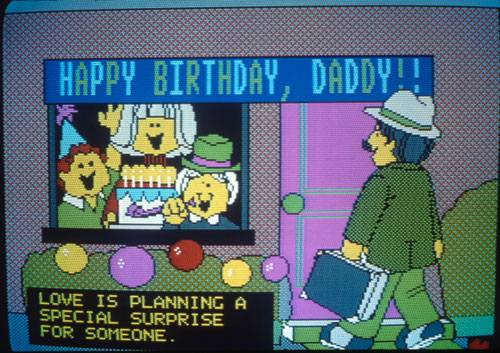
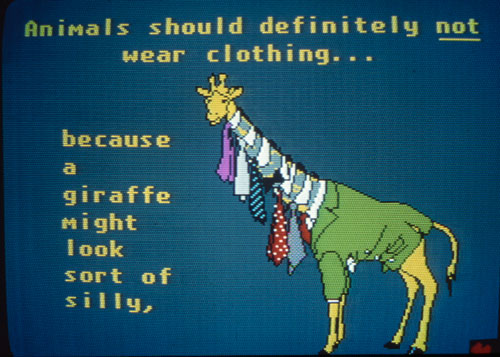
Genesis StoryTime was a videotex storybook that was broadcast in Canada and USA, 1983-1990. The Telidon graphics were converted to video and broadcast like a regular TV-channel, usually without sound. Images and video from Tedium.